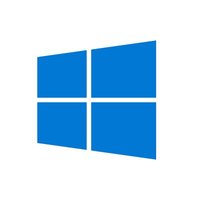Need advice about which tool to choose?Ask the StackShare community!
Windows 10 vs elementary OS: What are the differences?
Introduction Windows 10 and elementary OS are two popular operating systems that offer different features and user experiences. This article aims to highlight the key differences between these two operating systems.
User Interface: One major difference between Windows 10 and elementary OS lies in their user interfaces. Windows 10 has a more traditional and familiar interface with a taskbar, start menu, and desktop icons. On the other hand, elementary OS follows a clean and minimalist design approach, resembling macOS with a dock and an application launcher.
Software Availability: Windows 10 is known for its wide range of software compatibility, as it supports a vast number of applications and games from various developers. Conversely, elementary OS focuses on a curated selection of applications from its own AppCenter, ensuring a higher level of quality control and security.
System Resource Usage: When it comes to system resource usage, elementary OS is generally considered lighter and more efficient compared to Windows 10. This means that elementary OS can run smoothly on older or lower-end hardware, while Windows 10 may require more powerful hardware to perform optimally.
Privacy and Data Collection: Privacy is a growing concern for many users, and this is another area where Windows 10 and elementary OS differ. Windows 10 has faced criticism for its data collection practices, which some consider intrusive. On the other hand, elementary OS places a strong emphasis on user privacy and does not engage in excessive data collection.
Customization Options: Windows 10 offers a wide range of customization options, allowing users to personalize their desktops with wallpapers, themes, and various settings. While elementary OS does provide some customization options, they are more limited compared to Windows 10, reflecting the OS's focus on maintaining a consistent and cohesive user experience.
System Updates: The approach to system updates is another key difference between Windows 10 and elementary OS. Windows 10 typically requires regular and frequent updates, including security patches, feature updates, and bug fixes. In contrast, elementary OS follows a more conservative update schedule, focusing primarily on stability and security improvements rather than introducing major changes with each update.
In summary, Windows 10 offers a more traditional interface, wider software compatibility, and extensive customization options, but it may require more system resources and raises concerns about privacy. On the other hand, elementary OS provides a minimalist interface, a curated selection of high-quality applications, efficient resource usage, strong privacy emphasis, limited customization options, and a more conservative update approach.
Ubuntu is much more faster over Windows and helps to get software and other utilities easier and within a short span of time compared to Windows.
Ubuntu helps to get robustness and resiliency over Windows. Ubuntu runs faster than Windows on every computer that I have ever tested. LibreOffice (Ubuntu's default office suite) runs much faster than Microsoft Office on every computer that I have ever tested.
I liked manjaro a lot, the huge support it has and the variety of tools it provides is just awesome. But due to its parent platform being Arch Linux it has bleeding-edge technology and that meaning, we get updated 'daily', and if we keep updating the system daily, due to the bugs in the recent updates the system sometimes used to crash, this made the OS really unstable. However, one can avoid such crashes using periodical and careful system/package updates. I now use LinuxMint which is based on Ubuntu, and this OS is completely stable with reliable(mostly tested) updates. And, since this OS is backed up by UBUNTU the concerns/questions one can encounter while using the OS can be easily rectified using the UBUNTU community, which is pretty good. Though this is backed up on UBUNTU it most certainly does NOT include the proprietary stuff of UBUNTU, which is on the bright side of the OS. That's it! Happy Computing.
Pros of elementary OS
- Free to use5
- MacOs like feel4
- Fast4
- Stable4
- Elegant3
- Excellent replacement for Windows2
- Good for beginners2
- Very easy to use2
Pros of Windows 10
- On 4gb other applications less likely to run smoothly3
- Slow3
- Best for Indonesian PC Users2
- The best developer tools for all devices2
- Editors choice. But not suitable on 4gb ram. Alth1
- Complies with JIS Standard1
- Great is if you have 8b ram and a 128gb ssd minimum1
Sign up to add or upvote prosMake informed product decisions
Cons of elementary OS
- Less customization1
Cons of Windows 10
- Lags really much on low end devices3
- Slow, slow and slow3
- Worst OS to run on 2GB of RAM2
- Acts posh1
- Can't fix bugs yourself1






























